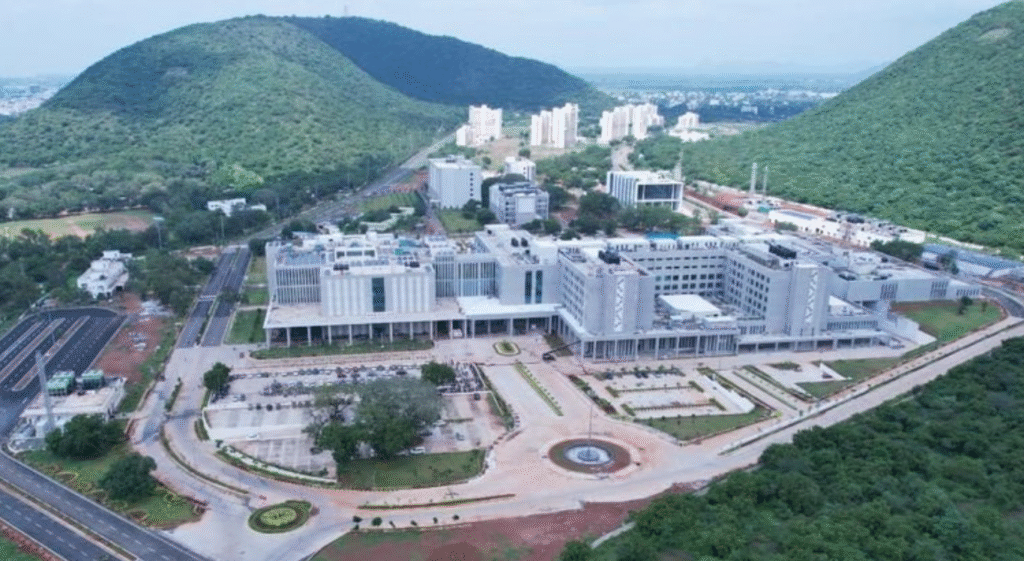The All India Institute of Medical Sciences (AIIMS) is one of the most prestigious names in the field of healthcare and medical education in India. Established with the goal of providing high-quality treatment, advanced research, and top-class education to aspiring doctors, AIIMS has become a symbol of trust for millions of people. The first AIIMS was set up in New Delhi in 1956, and it quickly gained recognition as the finest healthcare and research institution in the country.
Over the years, the Indian government decided to expand this model by setting up more AIIMS across different states so that advanced medical facilities could reach every corner of the nation. These institutions not only provide affordable and specialized treatment but also train the next generation of doctors and healthcare workers. Each AIIMS works under the Ministry of Health and Family Welfare and plays a crucial role in shaping public health policies.
With time, the number of AIIMS in India has steadily grown, reducing the burden on AIIMS Delhi and giving patients access to advanced treatment closer to their homes. Today, AIIMS represents both hope and excellence in healthcare across India.
How Many AIIMS Are There in India?
As of now, there are 25 AIIMS institutions announced across India, out of which several are fully functional while others are at various stages of development. Out of these, 20 AIIMS are operational, and the rest are under construction or in the process of becoming fully functional.
Some of the prominent AIIMS include:
AIIMS Delhi – The first and most established, with global recognition.
AIIMS Bhopal, Jodhpur, Bhubaneswar, Rishikesh, Patna, and Raipur – Fully functional and serving as major healthcare hubs.
AIIMS Nagpur, Kalyani, Bibinagar, Deoghar, Rajkot, Bathinda, and Gorakhpur – Newer additions that are already operational.
The expansion of AIIMS is part of the Pradhan Mantri Swasthya Suraksha Yojana (PMSSY), launched by the central government to correct regional imbalances in healthcare. The aim is to ensure that people in smaller towns and rural areas also have access to advanced medical care that was earlier available only in big metro cities.
This widespread presence of AIIMS institutions is gradually transforming the healthcare system of India and strengthening medical education at the same time.
Importance of AIIMS for Healthcare and Education
The growing number of AIIMS in India has a direct impact on both healthcare delivery and medical education. On the healthcare front, AIIMS hospitals provide affordable treatment with advanced technology. From complicated surgeries to cancer care, AIIMS offers specialized facilities that many private hospitals provide at a much higher cost. Patients from across the country travel to AIIMS centers for reliable treatment.
From an educational point of view, AIIMS is considered one of the most difficult and respected medical institutions to get into. Every year, lakhs of students compete for limited MBBS seats, making it one of the toughest entrance exams in India. Studying at AIIMS means access to world-class faculty, advanced labs, and exposure to real-life critical cases, which creates some of the best doctors in the world.
Additionally, AIIMS centers are also research hubs. They contribute to medical innovations, drug trials, and policy recommendations that shape the future of healthcare in India. In short, AIIMS institutions are not just hospitals; they are centers of excellence that build the foundation for India’s healthcare system.
Challenges and Future of AIIMS Expansion
While the expansion of AIIMS is a significant achievement, it also comes with challenges. Setting up such advanced institutions requires huge investment, proper infrastructure, and qualified faculty. Some of the newer AIIMS are still struggling with a shortage of doctors, delayed construction, and limited facilities compared to the older institutions.
However, the government continues to prioritize their development. Over the coming years, more AIIMS are expected to become fully operational, offering advanced treatments in areas such as cardiology, neurology, oncology, and organ transplants. This will reduce the load on older AIIMS like Delhi, which currently receives patients from all over India.
The future of AIIMS expansion is bright. With better connectivity, digital health initiatives, and continuous government support, these institutes will soon become the backbone of India’s healthcare system. They will not only provide specialized treatment to millions but also create opportunities for medical students to learn and contribute to society



